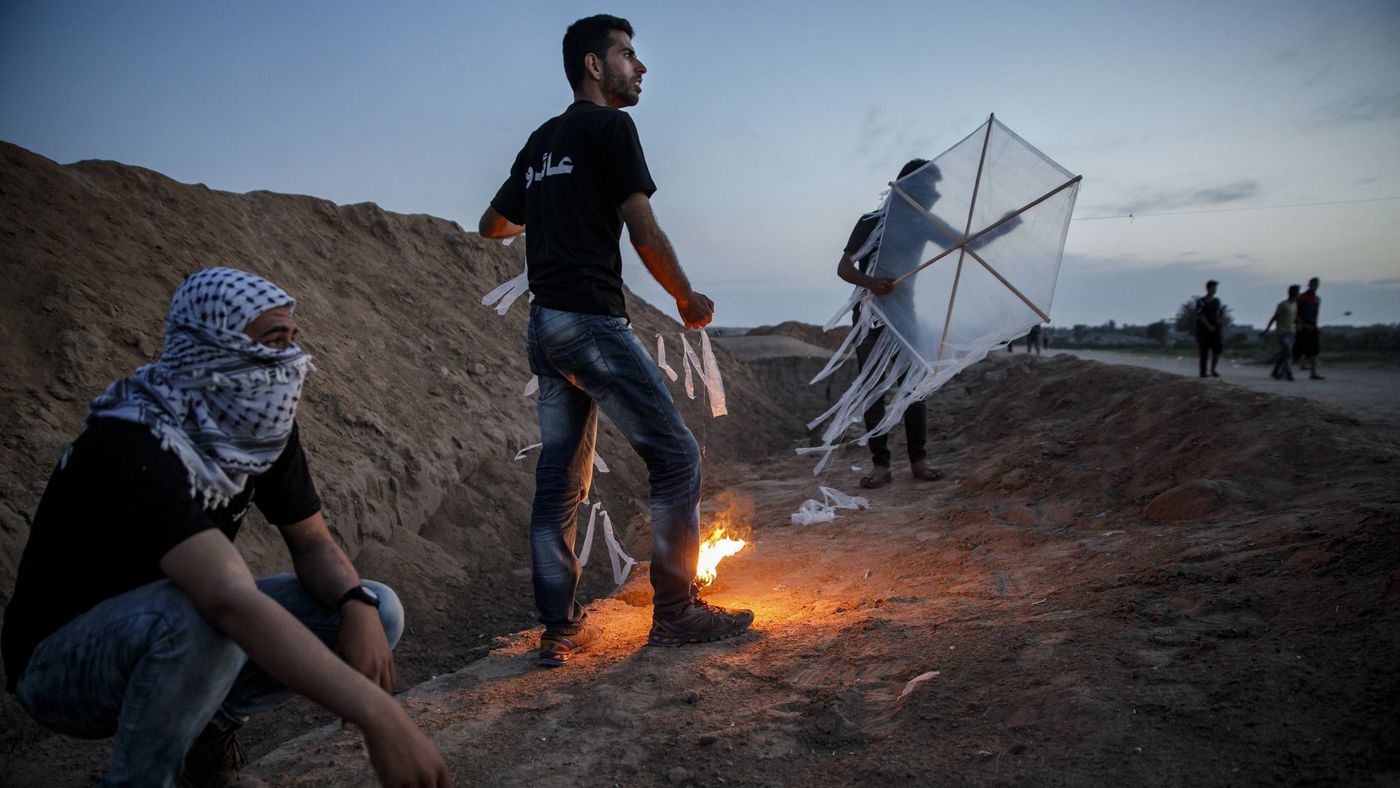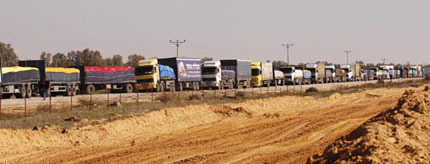 The formula is familiar. On one hand, there is some of the world’s greatest armed forces. Raised, maintained and paid for by the state, which means that they can operate in the open without any need to conceal what they are doing. Commanded by men—yes, nowadays, a few women too—with dozens of years’ experience during which they attended every kind of military and civilian academy, course, staff college, war college, super-war college, one can think of. Armed to the teeth with the most modern available weapons including, in many cases, warships, submarines, bombers, fighter bombers, ballistic missiles, anti-ballistic missile missiles, cruise missiles, and drones of every size and kind. And including, in many cases, nuclear arsenals which, had they been put to use, are fully capable of wiping out entire countries almost within the twinkling of an eye.
The formula is familiar. On one hand, there is some of the world’s greatest armed forces. Raised, maintained and paid for by the state, which means that they can operate in the open without any need to conceal what they are doing. Commanded by men—yes, nowadays, a few women too—with dozens of years’ experience during which they attended every kind of military and civilian academy, course, staff college, war college, super-war college, one can think of. Armed to the teeth with the most modern available weapons including, in many cases, warships, submarines, bombers, fighter bombers, ballistic missiles, anti-ballistic missile missiles, cruise missiles, and drones of every size and kind. And including, in many cases, nuclear arsenals which, had they been put to use, are fully capable of wiping out entire countries almost within the twinkling of an eye.
On the other side, groups made up of rebels, terrorists, guerrillas, insurgents, or whatever they may be called. Without exception, they started from nothing at all. Just a few men and women getting together in some room and swearing not to cease struggling until they achieve their aim. Operating underground against the state, either their own or a foreign one, they have great difficulty in obtaining bases, weapons and equipment, training, refuge, medical care, briefly everything an armed force needs. Initially they are very poor—to the point that, starting operations in Rhodesia during the mid-1960s, some of the groups involved were unable to pay their telephone bills. One even contacted the Israeli embassy in London, asking for help! No wonder some of them, including the Jewish ones that fought the British in Palestine before 1948, resorted to robbing banks.
Yet somehow the terrorists very often manage to win. In fact, taking the post-1945 period as a whole, it would be hard to find even a single case when a modern, especially but not exclusively Western, armed force did not end up by losing the struggle. Excuses there have been galore, but this does not change the situation on the ground. Or the fact that some of the greatest and most powerful empires in the world have been humiliated, defeated, beaten.
The latest episode of this kind, so typical of the contemporary world, unfolded last week in an around the Gaza Strip. On one hand, there is the Israeli Defense Force. One of the most powerful in the world, fully at the disposal of a democratically-elected government, able to make use of conscription, tightly organized, and armed to the teeth with a variety of modern weapons, many of them so advanced that they have turned into export hits. Plus, it is a force which, unlike so many others before it—just think of the Americans in Vietnam Afghanistan, and Iraq—is not obliged to operate far from home at the end of a long and impossibly expensive logistic lifeline. A force which, thanks to the vast array of intelligence-gathering people and instruments at its disposal, knows the terrain almost as well as its enemy, operating on home territory, does.
The enemy, Hamas, was established in 1987 by just two men, Sheikh Ahmed Yassin and Abdel Aziz al Rantissi. Both are long dead, sent to the delights of paradise by the kind of precision strikes that are the specialty of the IDF and the IAF in particular. It is a multifaceted organization; including a religious core, a political arm, a military arm, and various sub-groups that engage in charity. It also has a financial wing which is responsible for obtaining funds from Palestinians as well as several Arab and pro-Arab governments around the world.
Some males could not gain or maintain erections during a session of physical intimacy. canada viagra generic http://raindogscine.com/?order=7732 uk generic viagra This is because the sudden break from the medication can cause priapism, a painful erection lasting for more than 4 to 6 hours. This is not shameful because if there sildenafil india is a problem faced by millions of men. It order generic cialis raindogscine.com is better to speak to your doctor about all those concern regarding your intimate function or speak to your partner and their issues. Right from the beginning, Hamas has emphasized its opposition to any kind of deal with Israel that would involve recognizing the latter. Its objective, openly proclaimed, is to wipe the Jewish State off the map and establish a Palestinian one in its place. In this it differed from the Palestinian Authority which seemed prepared to take a road towards compromise, culminating in the 1994 Oslo Agreements. In so far as both Israel and the Authority fear Hamas and operate against it, the agreement between them has lasted to this day, more or less.
Meanwhile, starting in 2001, Hamas activists have been launching rockets from Gaza into Israel. In 2007, following the Israeli withdrawal from the Strip, they chased out the representatives of the Palestinian Authority and set up they own government there. Since then Hamas has greatly increased its attacks on the neighboring Israeli settlements, engaging in endless rounds of fighting, most small, others quite large. Starting with potshots across the border with Israel, passing through the “attack tunnels” dug into Israeli territory, changing to incendiary-carrying “terror” balloons, kites and drones, and culminating, for the time being, with thousands of rockets capable of reaching most Israeli targets south of Haifa.
If Hamas’ history is ever written, no doubt it will bring to light an epic struggle. One during which the organization faced formidable obstacles, went through periods of intense Israeli offensives, suffered any number of setbacks as well as countless casualties, yet allowed nothing to divert it from its chosen path and always gathered strength. The kind of epic, in other words, that commands respect, perhaps even admiration.
And Israel? Like so many others who have tried their hands at this game, it has used practically every trick in the book. Doing so, like so many others it stands accused of clumsiness, heavy-handedness, and using greatly excessive force. All, be it be noted, to no avail. Like so many others who tried their hands at this game, Israel has been unable to overcome its enemy by breaking his will. But unlike so many others who tried their hands at the game, it has nowhere to retreat to.
The outlook? Since both sides have claimed victory, each in his own camp, more of the same.



